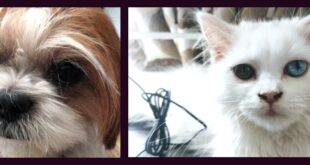A resume is a carefully curated précis of your professional tangent. It is your first introduction to a prospective employer via a document that is meant to present, who you are, on a piece of paper in a concise and lucid manner.
The chief purpose behind drafting a resume is to present a summary of your professional abilities, skills and accomplishments in an abridged manner. Since your resume is the most vital tool in your job search, it needs to be carefully written.
The key components of a resume can be broadly categorized into more significant and less significant details. Often people equate these seemingly less significant details as being insignificant and omit their mention altogether on a resume. There are some, who probably in an autobiographical vein use these details to portray aspects of themselves which should be best left out.
So then, what are these seemingly less significant details that attain significance once the resume passes to a recruiter?
Photograph – Your resume is your first detailed introduction to a prospective employer/recruiter and it is imperative that it be accompanied with a professional photograph, affixed on top. A photograph endows your resume with a persona and instead of being a faceless document; your resume acquires a more intimate interface with a recruiter. A recruiter can attribute the accomplishments & achievements detailed in the resume to a person and not just a name and that helps build a relationship. Hence, the photograph is important.
A point to note here is that the photograph itself should not be a “mug shot”. After all, we are not going to a police station parade! So, relax & smile. A photo should also not be a frivolous shot of you at the beach or a glamorous shot of you at a party. Your photograph on your resume is a vital tool in your job search, so use it well. Affix a professionally or casually clicked photograph of yourself, in presentable clothing, taken at the office or in neutral surroundings. Make sure that the photograph has clarity of picture and that you exhibit a pleasing look and a smile. The smile is important as no one wants to hire Mr grouchy or Ms Grumpy.
Objective – The objective of the resume sets the tone for the resume so it must be drafted keeping in mind the rest of the document & the details therein. The statement should be brief & should merely highlight what you have to offer to a prospective employer, in terms of your caliber & skills.
Many a times people falter and use this section to highlight why they would like to join the organization instead of mentioning what they can offer to the organization in terms of their capabilities. Sometimes they even copy objective statements off of the internet, without realizing that an objective is personal to an individual.
However, if you feel that you are unable to address this section of your resume competently, then it is best to omit its mention altogether.
Hobbies & interests – Sure, they need to be mentioned albeit in brief. This section gives a recruiter a more intimate glance into the kind of person you are. This leads to an insightful & qualitative assessment of you as an individual and adds depth to your candidature. Unfortunately most people do not make adequate use of this tool to introduce themselves to a recruiter. Hobbies and interest areas may be personal to you but on a document like a resume, they still need to be professionally presented.
Trust me when I say that “playing with my pet dog” is not a hobby that would add weight to your resume. It’s a pastime. But, “volunteering at an animal rescue center for dogs” or “working towards the welfare of street dogs” is definitely something that would fit the bill. Moreover, any hobby in which you exhibit initiative, drive & passion will elicit a positive response from a prospective employer. Similarly, please do not mention singing as a hobby if all you do is to enjoy off-key bathroom singing! “Dancing to bollywood music”, “socializing”, “enjoying with friends” are also absolute no-no’s. Distinguish your idle time pursuits from your interests and then pen down those which enrich your life with learning. That is the true intent of this section.
A lot of people mention reading as a hobby. However, reading is a solitary activity which may be indicative of you having an introverted personality. An introvert is not someone whom a prospective employer may want on his team. Organizations look for team players & extroverts who can manage & lead with aplomb. Hence, instead of reading, the cultivation of a hobby such as “book clubs”, “library groups” or “reading clubs”, would add more substance to your resume.
However, it may be noted that mentioning a hobby on a resume is wise only if you are actually involved in it or are currently interested to pursue it. Fudging and misrepresentation on your resume is a really bad idea.
Personal details– individuals either tend to write too much or too little in this section. It’s important to mention your marital status on your resume but just a brief mention of “married” or “single” will suffice for this section. A recruiter is not interested in the name of your spouse or kids, their age or educational qualifications. Remember, this is your resume we are talking about and not theirs! Hence, please omit things like, “having 2 kids, a boy and a girl aged 12 years and 7 years; studying in class VII & V”.
A lot of people become biographical while penning down personal details. They name their father, their mother and their respective professions. They name their spouse, their kids along with their respective ages and occupations. Believe me; such information is irrelevant on your resume. If recruiters need these details, they will specifically ask for them. So, stick to the point.
Also omit references to your height, weight and skin tone unless specifically asked for. Ladies may need to mention these details when applying for hospitality or aviation jobs but in other cases the details are unnecessary & irrelevant, so best left out.
Skill set – This is an important section in your resume so use it well to highlight your Computer prowess, technical training, certifications, professional accreditations, training & leadership courses attended etc.
However, be professionally correct while mentioning details. Refrain from mentioning that you are computer savvy & can operate MS office. That is a given in today’s date and age! If you cannot do that, then the corporate arena is not for you. Use this section to highlight proficiency with SAP, ORACLE etc. You can also mention computer software like 3Dmax, coreldraw etc.
A lot of people make the classic mistake of equating skill set with strengths. They are not the same. Please stick to only professional details in this section. I mean, your dexterity in the kitchen may be a domestic skill but it is best omitted on a professional document. It will certainly not leave a favorable taste on the recruiter’s palate! Via this section you are trying to sell your candidature and & not the food you cook. So, keep it crisp, interesting and professional.
Strengths & weaknesses – This section can be really important depending on how judiciously it is used. Confident, hardworking, dedicated, committed, perseverance etc can be character traits but not strengths that you embody. Your strength is something that you can illustrate with instances/examples, if needed. Decisiveness, adaptability, leadership, team orientation, practising a strong work ethic, negotiation etc are strengths which can lend more credibility to your resume.
However, whatever you pen down in this section, needs to be backed by suitable instances in your professional career. Your strengths are something that should ultimately add value to your candidature and a prospective recruiter should feel that they would benefit by adding you to their team.
This is not a section to pen down in haste. You can be called upon to explain this section at an interview so take your time, think, introspect and dig deep to delve into instances in your past & present organizations wherein you were called upon to exhibit a skill which ultimately benefited everyone.
Penning down your weaknesses on your resume may not seem like such a good idea but strengths & weaknesses go hand in hand. Hence, contemplate and then write. The recruiter will look for honesty & objectivity in this section. They want people who are candid about their shortcomings and yet are able to overcome and rise above them.
Ultimately the point to remember is that most recruiters will only glance through your resume so it needs to pack impact. It needs to be presented in a manner in which the document is brief & yet concise.
Image – Helloquence via unsplash
 Sonal Singh On Sonal's Table
Sonal Singh On Sonal's Table




